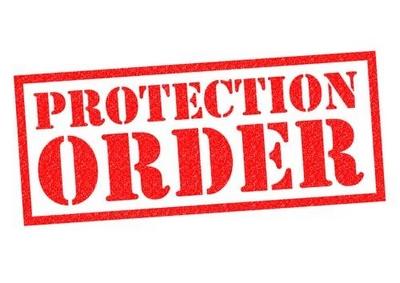Orders of Protection FAQs
 Home is the one place everyone should feel safe. Sadly, for those people who are victims of domestic violence, home is often the last place they want to be. Intimate partner violence affects one out of every three women and one in four men. Fortunately, there are legal steps a person in an abusive relationship can take to secure their safety and that of their children. An order of protection, sometimes referred to colloquially as a restraining order, is one of these steps.
Home is the one place everyone should feel safe. Sadly, for those people who are victims of domestic violence, home is often the last place they want to be. Intimate partner violence affects one out of every three women and one in four men. Fortunately, there are legal steps a person in an abusive relationship can take to secure their safety and that of their children. An order of protection, sometimes referred to colloquially as a restraining order, is one of these steps.
Who Should Get an Order of Protection?
If you fear for your safety or the safety of your children because a romantic partner or other close family member is threatening or actively abusing you, an order of protection may be the right first step in escaping that toxic relationship. Domestic violence can look different from case to case but some of the most common tactics abusers use include:
- Put-downs, insults, and criticism intended to ruin the victim’s self-esteem;
- Manipulation, lies, or gaslighting behavior which confuse the victim;
- Physical attacks including punching, kicking, slapping, and pushing;
- Threats and intimidation;
- Forced sexual contact;
- Isolating the victim from friends and family;
- Withholding money or other resources from the victim;
- Making accusations against the victim in order to deflect attention;
- Stalking; and
- Overly controlling behaviors.
This list is not exhaustive and domestic abuse can include behaviors not listed here. If you feel worried for your safety or the safety of your children, you most likely qualify for an order of protection.
How Can I Get a Protection Order?
The first order of protection a person should get is an emergency order of protection (EOP). In Illinois, a person can acquire this order without needing to participate in a hearing or to definitively prove that they are being abused. The victim will only need go to their county courthouse and request the EOP. He or she will need to provide testimony as to why they are requesting this protection and the basis for his or her fear. The EOP lasts 14 to 21 days. At the time the victim is given an EOP, the court will set a date for a hearing for a plenary protection order. Both the victim and alleged abuser will be expected to attend this hearing, but the order of protection can still be granted if the alleged perpetrator does not show up for the hearing. A plenary protection order can last much longer than an EOP—up to two years—and is able to be renewed in the future.
How Does a Protection Order Protect Me?
- The judge who grants the order of protection will include in it the provisions the abuser must abide by. An order of protection may include:
- No contact provisions which disallows the abusive partner from contacting the victim either in person or through email or phone;
- Stay away provisions which orders the abuser to stay a certain distance from the abuser;
- Firearms provisions which requires the abuser to surrender his or her guns; and
- Counseling provisions which requires the abuser to attend anger management or other counseling.
If you have further questions about how an order of protection can help you and your family, the experienced DuPage County domestic violence attorneys at Pesce Family Law are here to help. Call 630-352-2240 to set up your confidential consultation today.
Sources:
http://www.ilga.gov/legislation/ilcs/ilcs4.asp?ActID=2100&ChapterID=59&SeqStart=500000&SeqEnd=4200000
https://ncadv.org/statistics











 630-352-2240
630-352-2240


